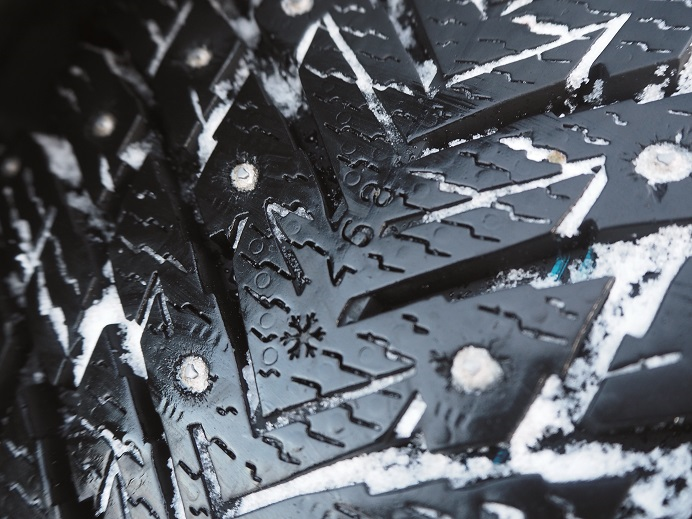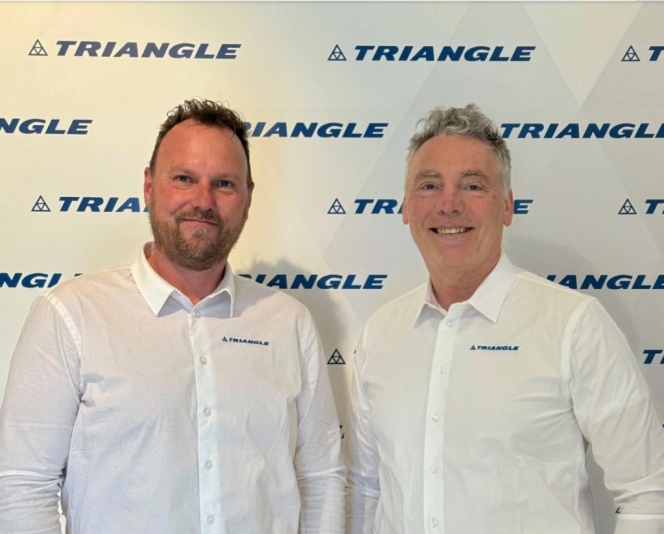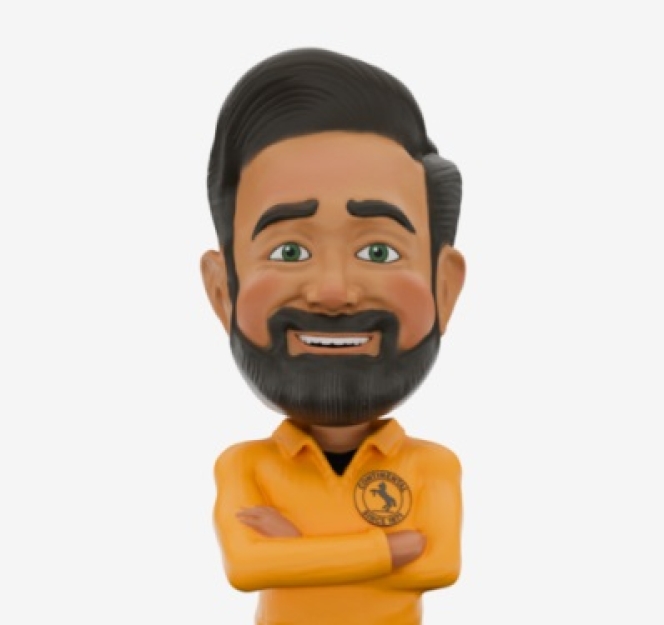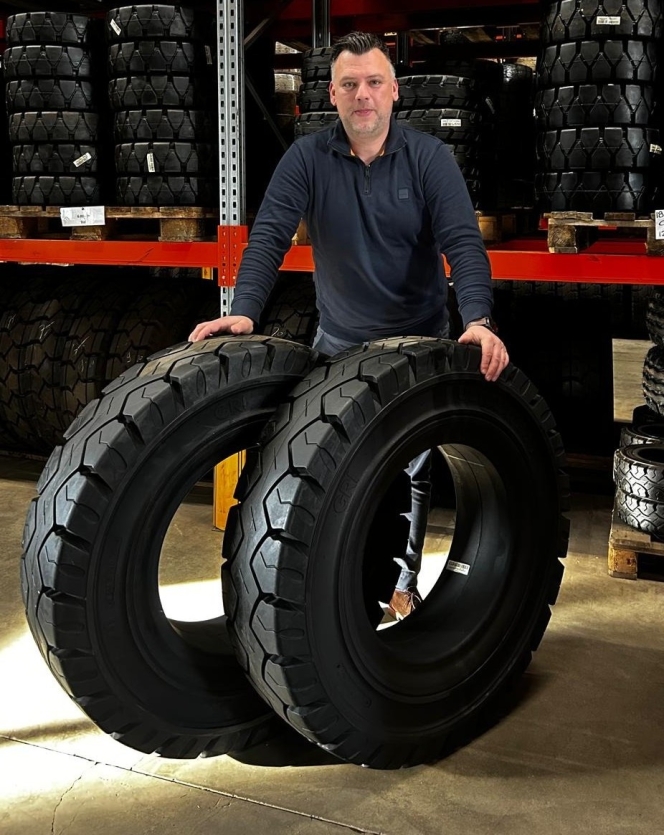Breaking Barriers: Women Drive Change In Tyre Testing
- By Nilesh Wadhwa
- April 16, 2025

In a candid interaction with Tyre Trends, freelance tyre testing specialist Juuli Raatikainen shares her views on the intricacies of tyre testing, the role of women in the industry, simulation and the road ahead, reports Nilesh Wadhwa.
“Women have been driving cars for decades, so why not be part of the tyre and automotive testing industry? I believe the bigger question and challenge is how the industry (tyre and automotive) can think beyond gender. The tyre testing industry is huge, but there are not many direct studies to learn about it and become part of it,” remarked Juuli Raatikainen, the 28-year-old test driver and mechanic who has been offering freelance services for tyre testing for the last four years.
INITIAL JOURNEY
It is no secret that tyre testing is not a widely known field. A simple internet search for the world’s top 10 racers or motorsport celebrities will return mostly male sports personalities.
For Raatikainen, the journey into tyre testing began as a test assistant in Lapland, Finland.
 “I started my career as a test assistant. My passion for testing grew, and I was eager to learn more, working hard to gain knowledge. My efforts were noticed, and I received the necessary support. The decision to start my own company and operate as a freelancer was quite easy for me. In the first two years, I focused on gaining experience, testing time and learning as much as possible. I wanted to see tyre testing from different angles, companies and drivers. Today, I am happy to say that I have experience in tyre testing operations as a tyre mechanic, test assistant, instrumentation specialist and objective test driver. I am also engaged in testing tyres and vehicles for events and magazines,” she shared.
“I started my career as a test assistant. My passion for testing grew, and I was eager to learn more, working hard to gain knowledge. My efforts were noticed, and I received the necessary support. The decision to start my own company and operate as a freelancer was quite easy for me. In the first two years, I focused on gaining experience, testing time and learning as much as possible. I wanted to see tyre testing from different angles, companies and drivers. Today, I am happy to say that I have experience in tyre testing operations as a tyre mechanic, test assistant, instrumentation specialist and objective test driver. I am also engaged in testing tyres and vehicles for events and magazines,” she shared.
THE EVOLVING ROLE OF TYRE TESTING
Tyre testing has evolved over the years, from physical and mechanical assessments to indoor methods, including Tyre-in-the-Loop (TiL) testing, a form of hardware-in-the-loop (HiL) simulation. However, despite technological advancements, many tests still need to be conducted in real-world conditions to determine optimal solutions.
For example, a vehicle travelling in a sandy environment at a particular tyre pressure will have different braking times even at the same speed. The steering response, traction at different corners and slippage will also vary.
“I find simulators to be a good tool for all drivers and for hardware development. However, no one knows exactly how they will impact testing in the future. Many questions remain, and some conditions and types of tests cannot yet be simulated accurately. As a test driver, my main expertise is in winter testing. From my experience, winter conditions are particularly difficult to replicate artificially. Winter is a living, breathing element of nature, making it hard to forecast, as conditions can change very quickly,” she explained.
For tyre manufacturers, real-world testing is essential for finding the right conditions and weather. For instance, summer tyres cannot be tested in winter, nor can Nordic spike tyres be tested in warm conditions. “It is a challenge for companies to run tyre tests year-round and across different locations. Agility is key,” Raatikainen added.
Tyre testing falls into two main categories: objective and subjective. Objective testing relies on instruments to assess tyre performance, while subjective testing depends on the driver’s evaluation.
“As a freelancer, I work across different processes. Transparency with clients is my priority. It’s about what I do and how I do it. Trust is one of the key values I bring to the table,” she explained.
KEY LEARNINGS & TYRE SAFETY
As a test driver, Raatikainen has firsthand experience of how tyre choices impact performance and safety in different conditions.
“Statistics show that one of the most common mistakes drivers make is using the wrong type of tyres for their environment and weather conditions. When selecting tyres, it’s crucial to consider two key questions: Where will I be driving, and in what weather conditions? These simple considerations can significantly impact safety,” she added.
Most tyres have a wear indicator on the tread to signal when they need replacement, but these warnings are often ignored.

According to data from the Ministry of Road Transport & Highways (MoRTH), India recorded 461,312 road accidents in 2022, resulting in 155,781 fatal cases. Despite tyres having a significant influence on vehicular control, they are rarely cited as a primary cause of accidents.
When replacing tyres, it is also crucial to check their manufacturing date. Raatikainen emphasises that even a ‘new’ tyre must be evaluated based on its production date, as rubber degrades over time, regardless of use.
“Regularly checking tyre condition is just as important as choosing the right type. Ensure tyres have adequate tread depth, are free from cracks or bulges and are properly inflated. These simple maintenance habits can extend tyre life and improve safety,” she added.
FUTURE TRENDS IMPACTING THE TYRE INDUSTRY
New-age vehicles and tightening regulations are pushing industry players towards sustainability and reducing their carbon footprint.
For the tyre industry, environmentally friendly sourcing, production and materials remain key focus areas. From a tester’s perspective, what does the future hold?
“I am excited about advancements in simulation technology and their impact on the tyre industry. Another major trend is the growing emphasis on indoor testing for winter tyres, which addresses unpredictable weather challenges and helps distribute testing workloads more efficiently,” she said.
A third emerging trend is smart tyre technology.
“While modern vehicles are equipped with advanced systems, tyres have yet to integrate similar innovations. The questions of when this technology will arrive, how it will develop and what features it will bring are incredibly exciting. I look forward to seeing how smart tyres will enhance safety, performance and the driving experience,” Raatikainen concluded.
Triangle Tyre Appoints Federico Parmesan As European OTR Technical Manager
- By TT News
- March 04, 2026

Triangle Tyre has significantly strengthened its European off-the-road operations with the appointment of Federico Parmesan as the new European OTR Technical Manager, a position he assumed on 1 March 2026. This strategic appointment represents a key milestone in the company's ongoing efforts to enhance its technical capabilities and expand its market presence across the continent's specialised tyre sector.
Parmesan brings more than three decades of tyre industry experience to his new role, with particular expertise concentrated in OTR and earthmoving applications. His extensive background encompasses not only deep technical knowledge but also a comprehensive understanding of the challenges faced by dealers and end-users operating in demanding environments. This combination of technical proficiency and practical insight positions him to effectively bridge the gap between product development and real-world application requirements.
In his new capacity, Parmesan will work closely with Triangle's partner network throughout Europe, providing support for both aftermarket and original equipment segments. His responsibilities include strengthening the company's field application expertise and contributing directly to the continued development of the OTR product portfolio. These efforts aim to deliver enhanced value and service to partners across the region.
The appointment reflects Triangle's strategic priority of reinforcing its technical structure to support ambitious growth objectives in the European OTR segment. The company seeks not merely to consolidate its existing market share but to achieve sustainable expansion while elevating support levels for its partners. Parmesan's extensive experience, energetic approach and positive attitude are expected to prove invaluable assets as Triangle pursues these goals and strengthens its position within the competitive European market.
ATF Tyres Appoints Rajesh Vyas As Vice President Of Sales And Marketing
- By TT News
- March 03, 2026

ATF Tyres, one of India’s leading manufacturers of off-highway tyres, has announced the appointment of Rajesh Vyas as its new Vice President of Sales and Marketing. Vyas brings over 25 years of global experience to the role, having worked across diverse international markets to build high-performance sales teams and enhance distribution networks.
His professional background includes leadership roles in brand positioning and product portfolio expansion within competitive sectors. Prior to joining ATF, Vyas served as Vice President at Rubber King Tyre Group. He also held key positions at Balkrishna Industries Limited as Head of Mining Tyres for India and spent a decade at Apollo Tyres Ltd as Business Head for Off-Highway Tyres.
With the company working to expand its footprint in the agricultural, industrial and OTR segments worldwide, Vyas’s strategic leadership and commercial insight are expected to support ATF Tyres in delivering performance-driven solutions across multiple regions.
Continental Intros ‘Nod Of Confidence’ Ambassador To Enhance Tyre-Buying Experience
- By TT News
- March 03, 2026

Continental Tire has introduced a fresh and distinctive marketing figure known as the ‘Nod of Confidence’ ambassador to connect with drivers on a deeper level. This initiative is designed to encapsulate the precise moment a customer feels absolute certainty in their purchase decision, visually represented by a simple, affirming nod. It is a symbolic gesture that conveys the reassurance, trust and satisfaction associated with selecting a premium tyre brand.
For years, Continental has been regarded as the smart choice in the industry, a reputation built on a steadfast dedication to superior quality, advanced technology and dependable performance. The company consistently responds to market demands by engineering tyres that deliver exceptional comfort and peace of mind. Recognising that the process of buying tyres can often be complex and filled with uncertainty, this campaign targets the emotional journey of the consumer. It aims to capture that pivotal moment of clarity when a driver moves from questioning and comparing options to confidently confirming they have chosen the best solution for their vehicle and family.
This new ambassador is an extension of Continental's broader mission to simplify and enhance the tyre-buying experience. By blending cutting-edge tread innovations with customer-focused education and support, the brand continues to prioritise driver needs while reinforcing its leadership in the automotive industry.
Brian Beierwaltes, Head of Marketing US PLT, Continental Tire, said, “We understand that today’s consumers are looking for more than just a product, they’re looking for confidence. This creative idea brings our ‘Smart Choice in Tires’ philosophy to life in a simple, relatable way. That nod represents reassurance, expertise and the peace of mind that comes from selecting a brand that consistently delivers on performance, comfort and innovation.”
GRI Appoints Eldo Verhaagen To Lead Benelux Material Handling And Agriculture Operations
- By TT News
- March 03, 2026

GRI, a leading producer of speciality tyres from Sri Lanka, has named Eldo Verhaagen as its new Sales & Operations Director for Material Handling and Agriculture across the Benelux region. This strategic move underscores the company’s drive to enhance its regional footprint by reinforcing leadership, improving operational efficiency and strengthening relationships with local customers. Verhaagen’s arrival marks a continued push to expand GRI’s presence in both the material handling and agricultural sectors.
With extensive experience in the tyre and automotive fields, Verhaagen brings a proven background in guiding strategy, boosting commercial performance and refining operational processes. His familiarity with a broad range of tyre types – including those used in trucking, farming, construction and material handling – combined with a direct, customer-oriented working style, makes him well-suited to steer the region through its upcoming growth phase.

Verhaagen takes over from Herman Klumpenaar, whom GRI has thanked for his dedicated leadership and smooth handling of the leadership transition. The Benelux team is now set to collaborate closely with Verhaagen, aiming to sustain regional progress and ensure long-term, steady development.
Giorgio Gramegna, Director of Europe – Sales, Marketing and Distribution at GRI, said, “We thank Herman for his leadership and contribution over the years. We are pleased to welcome Eldo and are confident that his experience and market knowledge will further strengthen our presence and performance in the Benelux region.”







Comments (0)
ADD COMMENT